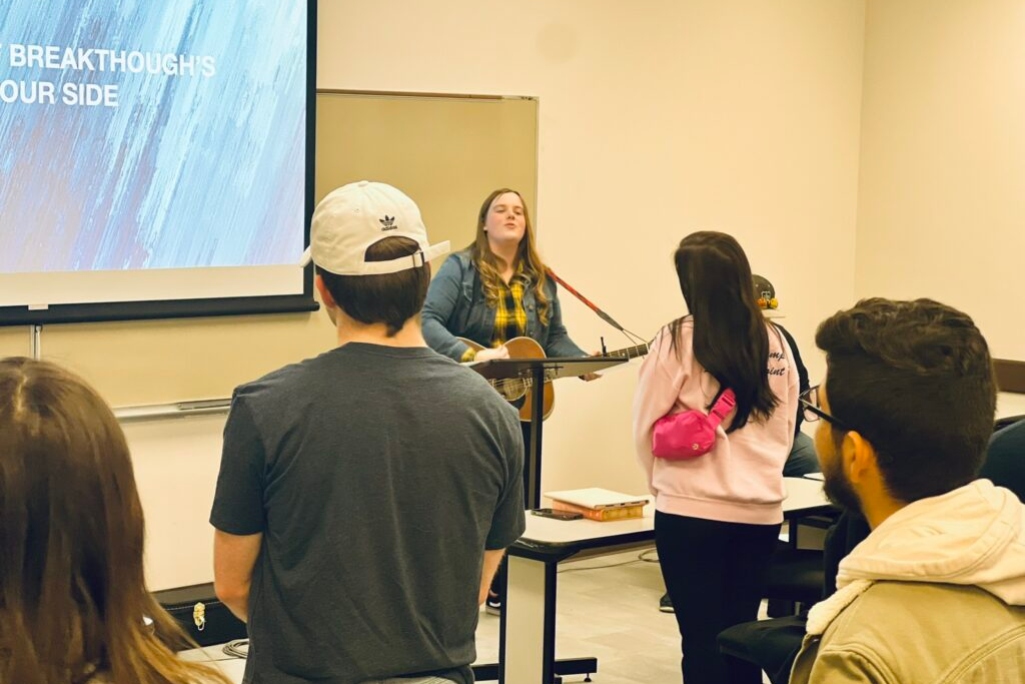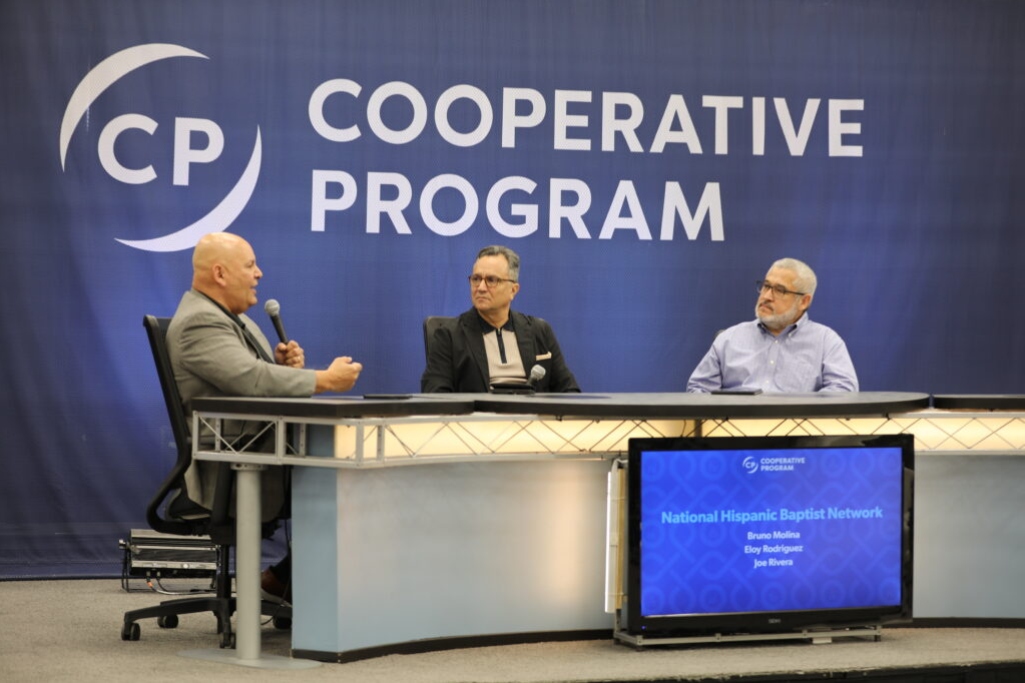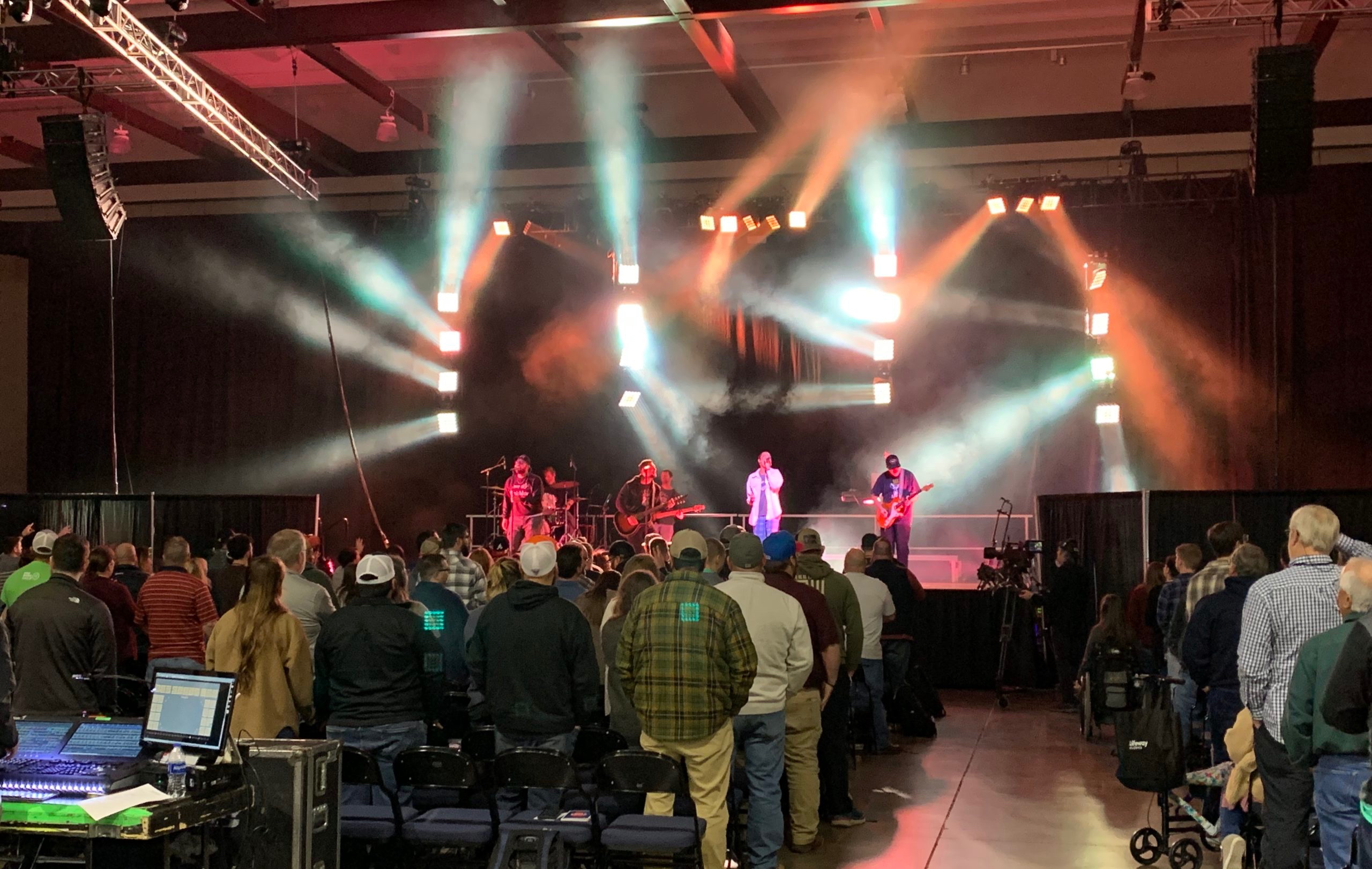
Oklahoma City Community College's BCM holds worship in a classroom. Building relationships in a setting where most if not all students are commuters is important for ministry, say BCM directors at community colleges.
TULSA, Okla. (BP) – Doing ministry at Tulsa Community College is like a lot of other schools where, by design, students aren’t there for long.
“Time is a big factor,” said Sarah Ashcroft, a director for TCC Baptist Collegiate Ministry (BCM). “We create a lot of entry points and help them become leaders as fast as possible. It’s important to maximize their time on campus because they’re probably going to transfer.”
As with other community colleges, most TCC students are there for only two years, perhaps a third. All are commuters, as the school doesn’t have a dorm.
“They likely live at home, so we juggle with the family aspect,” Ashcroft said. “They may have family obligations, a curfew or chores like picking up a sibling from practice.”
Schools like TCC are known for lower costs and flexibility. Students range in age from dually enrolled high schoolers to those well into adulthood, juggling full-time jobs and families with night classes.
Dual enrollment has grown, and recent estimates indicate as many as 20 percent of community college students are still in high school. While that has brought stability, the overall trend among higher education reflects a precipitous drop in enrollment over the last decade.
Community colleges are the rare bright spot. Although suffering the same decline since 2011, enrollment grew slightly this spring. Alabama saw its second year of growth. Illinois witnessed its largest year-over-year enrollment in 15 years.
It makes time more essential. At Oklahoma City Community College, the term “school year” even takes on a different meaning.
“I may have a student one year before they move on to a four-year school,” said Pauline Boren, BCM director. “That’s a small percentage, but it’s one of the reasons why we do ministry on a semester-to-semester plan instead of year to year.
“Our semesters are our school years.”
School ties
Trevor Cooper has experienced a good bit since becoming pastor of First Baptist Church in Cypress, Calif., in 2018. That includes establishing a presence at Cypress College, a nearby two-year school, in an affluent, liberal area.
He had just started visiting the campus when COVID-19 shut everything down in 2020. Re-establishing that connection began with visiting the student services office.
“I wanted to partner with them, be a part of the community and not have my presence be about my agenda,” he said. “My focus was the international [students] office, and so I spent about three months getting to know the directors, those who were on staff and the students working there.”
Those goals did not include a covert style of Christianity, though.
“Our purpose was to inform them of who we were, offer resources through their programs and office and build trust with the people in those offices,” Cooper said.
Students want to be in community, he added, but not one that can have an appearance or feel of being artificially designed with an ulterior motive in place. They don’t want to feel like a project. Relationships matter.
Cypress College doesn’t have a BCM. And while outside observers may expect Cooper’s evangelical background to limit his access, that hasn’t been his experience.
“I get the privilege of praying and speaking Gospel truth to faculty members, to teachers, janitorial staff, even those of other faiths,” he said.
Tulsa Community College is spread throughout the city on four campuses – two of which have BCMs led by Ashcroft while the other two are directed by Riley Sowell.
Ashcroft also stressed the importance of a healthy relationship with the school.
“They know who I am,” she said. “I’m frequently called the BCM lady and they know where to find me on campus.”
Church partnerships are crucial to success, the campus ministry directors said.
“They can provide a lunch throughout the semester,” said Boren. “This gives them an opportunity for Gospel conversations with students. Churches are always invited to do that or other things like disciple students they’ve met or prayer-walk the campus.”
Cooper’s church typically has 40-50 in attendance on Sundays. Community college ministry, even if there isn’t a BCM, opens doors to reach students but also for discipleship of church members.
“If we have an agenda, it’s to pray for people and let them see and know who Jesus is,” he said.
(EDITOR’S NOTE – Scott Barkley is national correspondent for Baptist Press.)


